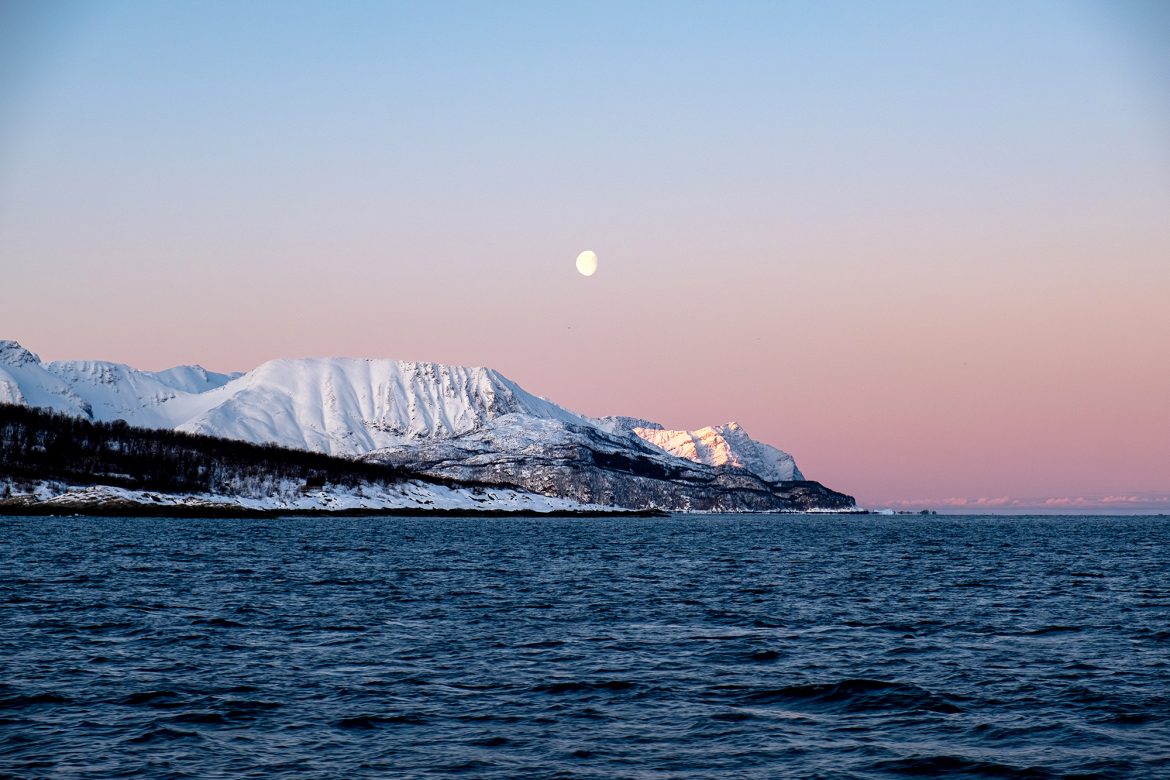This article was published in Oceanographic Magazine on the 3rd of March 2020.
Introduction
I linger on deck, frozen with my camera ready, as an incredible sight unfolds before my eyes. Approximately 20 orcas and four humpback whales are in the midst of a feeding session, as two sea eagles hover above them and bicker over a herring. The sunset paints the Arctic sky in pastel colours, as orcas curiously spy hop and dive in the vicinity of our boat. Meanwhile, the humpbacks emerge from the water with a loud thud, gulping down their prey with their mouths wide open. My dream of photographing whales in Northern Norway has finally come true.
We are not the only vessel at sea. Several Zodiacs and a catamaran drift beside us with tourists on board. Suddenly, the whales’ activities are interrupted, as the neighbouring catamaran powers its roaring motor. The large vessel surges forcefully ahead, heading straight towards a pod of feeding orcas. Seemingly oblivious to the marine mammals, the catamaran abruptly sails directly over the pod, as its tourists on board blissfully wave at us. And then – silence. The pod of orcas remains underwater, buried under the crest of the large catamaran that just passed over it. My awe and excitement for photographing whales fade instantly. Overcome by shock and exasperation, I put my camera down. As whale watching regulations in Northern Norway do not exist, the behaviour I just witnessed is not considered a crime.
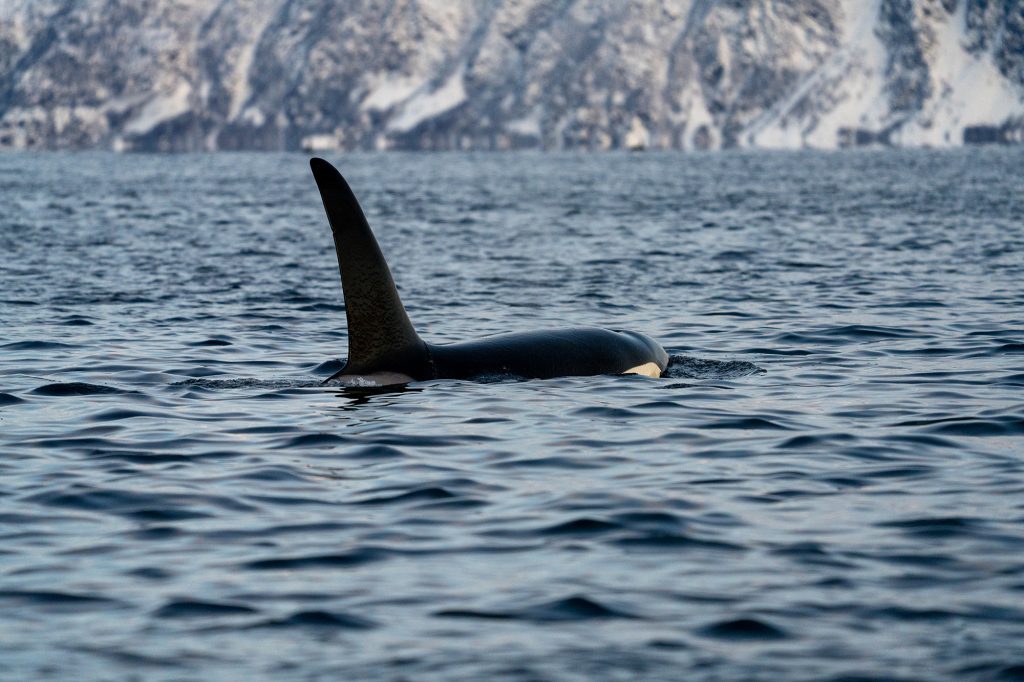
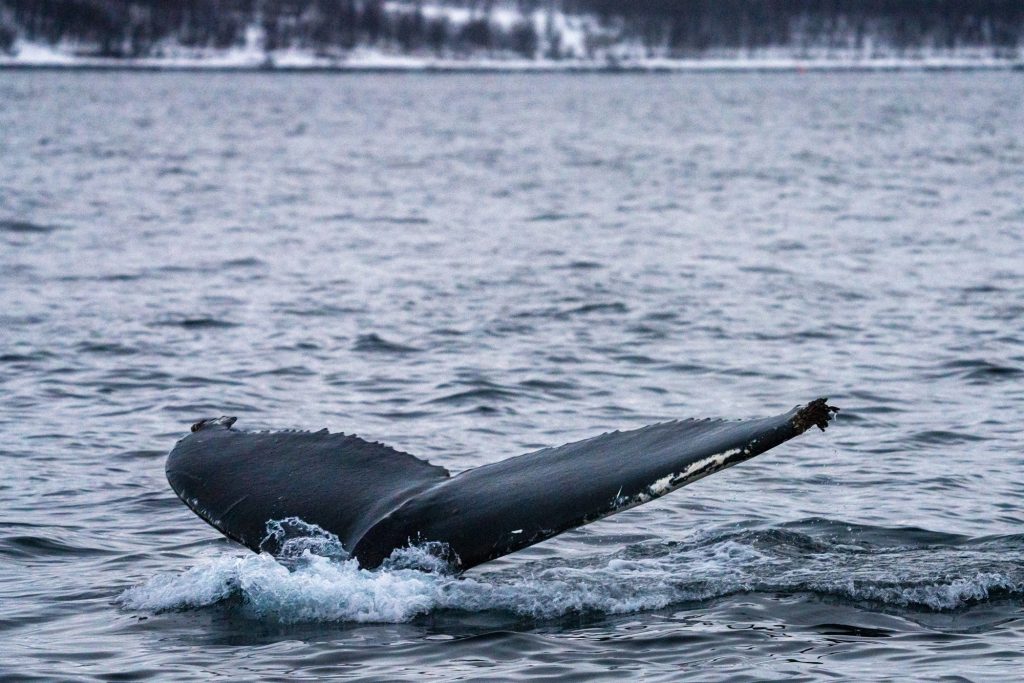
On the Edge
Despite the thriving whale watching industry in Northern Norway, there are still no legally enforced guidelines for tour providers. This leaves little room for ethical considerations, accountability and standardised operations. Rather, whale watching providers are encouraged to take it upon themselves to form an industry standard. While many companies conform to these stipulated standards, outliers such as the catamaran I witnessed are not uncommon. As more tourists participate in whale watching, collisions and interceptions of whale paths occur more frequently. This is especially prominent with very large or fast-moving vessels, as well as with so-called ‘swim-with-cetacean tourism.’
Whale watching operators in Tromsø discourage in-water encounters with marine mammals. However, diving with whales continues to be legally practiced in several locations around Norway. Such activities generally entail an active rather than passive pursuit of whales. Therein, snorkelers are placed directly in the path of oncoming cetaceans, or the whales are chased in their direction of movement. Activities of this type are substantially more invasive than regular boat-based whale watching.
Malpractices as such are not just misleading for tourists by normalising substandard operations. They also endanger the snorkeler, and can have harmful consequences for the gentle giants they encounter.
Whales are delicate creatures. Repeat disturbances throughout the day by a multitude of vessels, snorkelers and those interested in photographing whales may drastically alter their behaviours, with grave repercussions. Marine mammals may have no time to rest, hunt, socialise, or rear their young. This can result in a change in behaviour patterns, increased susceptibility to diseases, lower reproduction rates, and migration from the affected areas. These risks are magnified, as collisions with whale watching boats makes cetaceans highly susceptible to serious injuries and even death from vessel strikes.
In spite of the worrisome malpractices that continue to prevail in whale watching tourism, hope for change is on the horizon. Several whale watching pioneers are drastically innovating the industry through green technologies and tourism-funded research. The objective is to promote conservation efforts, spread awareness and educate the public about these fascinating creatures.
Read more: Why Nature Photography is Now More Important Than Ever
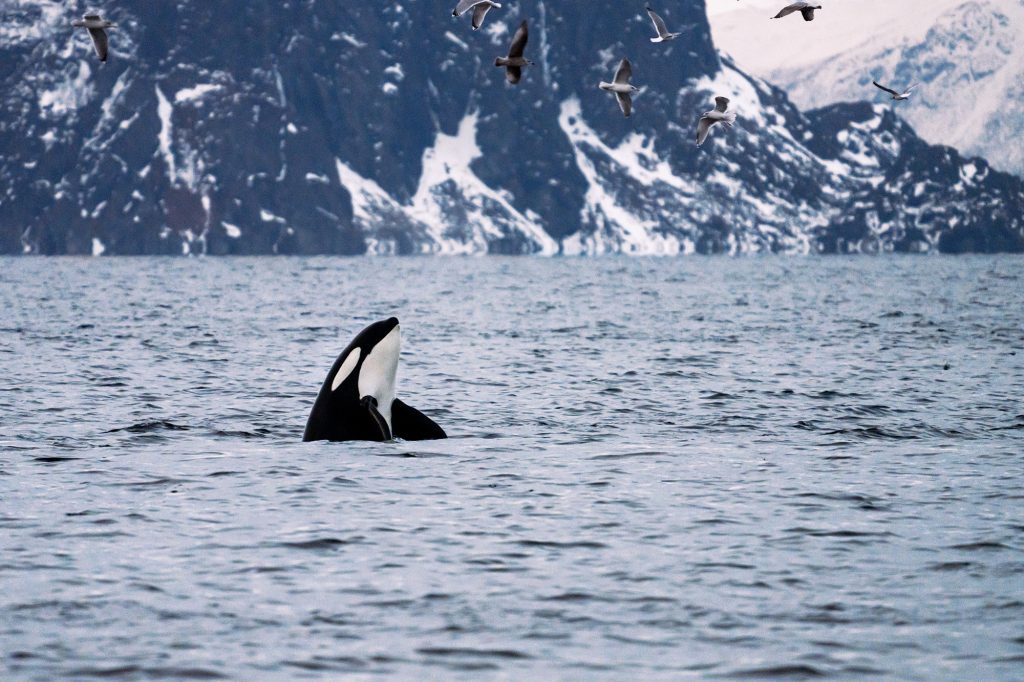
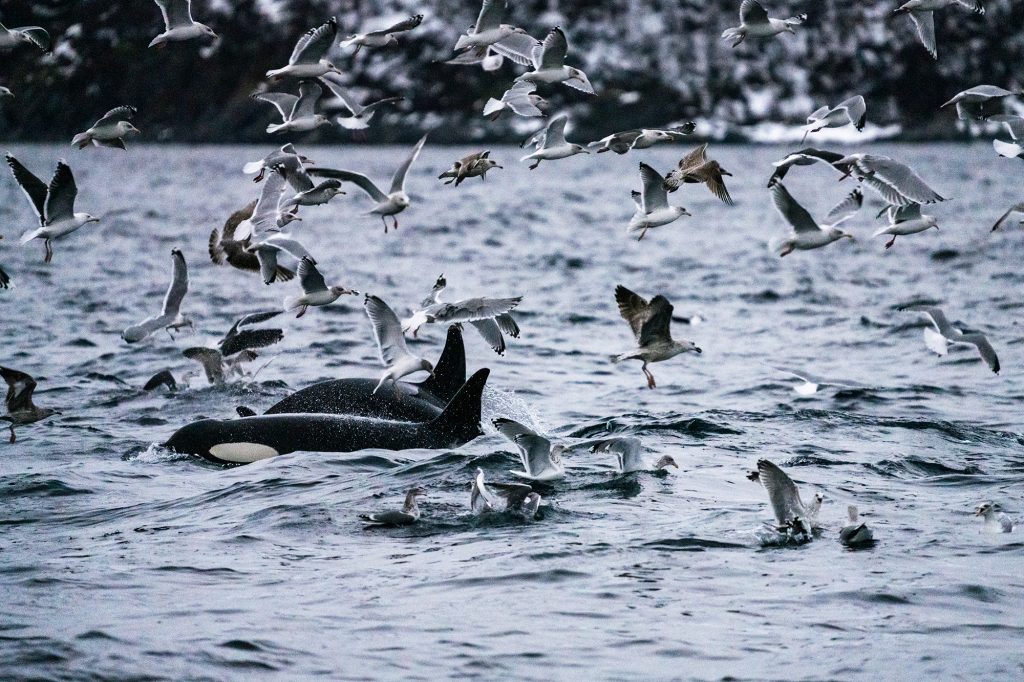
Breaking Tradition
The boat is silent as we sail out to sea in the early morning. No humming motors, no noise pollution – just the sound of the breaking waves and the brisk winds hitting the boat. I find myself at peace on board, as the innovative hybrid-electric ship Brim Explorer commences its search for orcas and humpback whales. Custom built for polar water exploration, its mission is to discover the awe-inspiring coast of Arctic Norway without causing harm to nature. By utilising green technology, its primary focus is to create experiences that bring us closer to the ocean through sustainable tourism. It is one of the first sightseeing vessels in the world the is able to operate for an entire day on electric power. Thereby, tourists can embark on an ocean excursion without imposing additional stress to whales and their habitat.
Throughout the tour, storytelling and knowledge-sharing is a priority on board. By emphasising whale behaviours, their social structure, characteristics, and marine mammal conservation efforts, the crew members on board ensure that tourists leave the boat with a rich understanding of these cetaceans. Moreover, for creatives photographing whales, it allows us to more authentically portray these delicate creatures.
Active environmental engagement is also encouraged, as potential problems and the ethics of whale watching practices are highlighted. As one of the guides on board says, “it’s not every day that we have this connection with nature. It’s hard to really feel the passion for protecting something and fighting for it if you aren’t connected with it. The opportunity when people come here and see whales next to us is a great chance to reach people when they’re receptive and explain to them more about the challenges faced by marine mammals and the wildlife in the ocean in general.”
I witnessed firsthand as orcas and humpbacks approached the boat with fearless curiosity. This is a primary indicator that hybrid-electric vessels are important for the future of whale watching tourism and when photographing whales. While these pioneering developments are already in place, the spirit of innovation continues to prevail. Through continuous improvements, a further reduction of the impact on the environment is already in the works. Future innovations include solar panel integration, development of renewable energy stations, and the rebuilding of existing vessels to run on a combination of biofuel (produced from organic waste), liquefied natural gas and large battery packs.
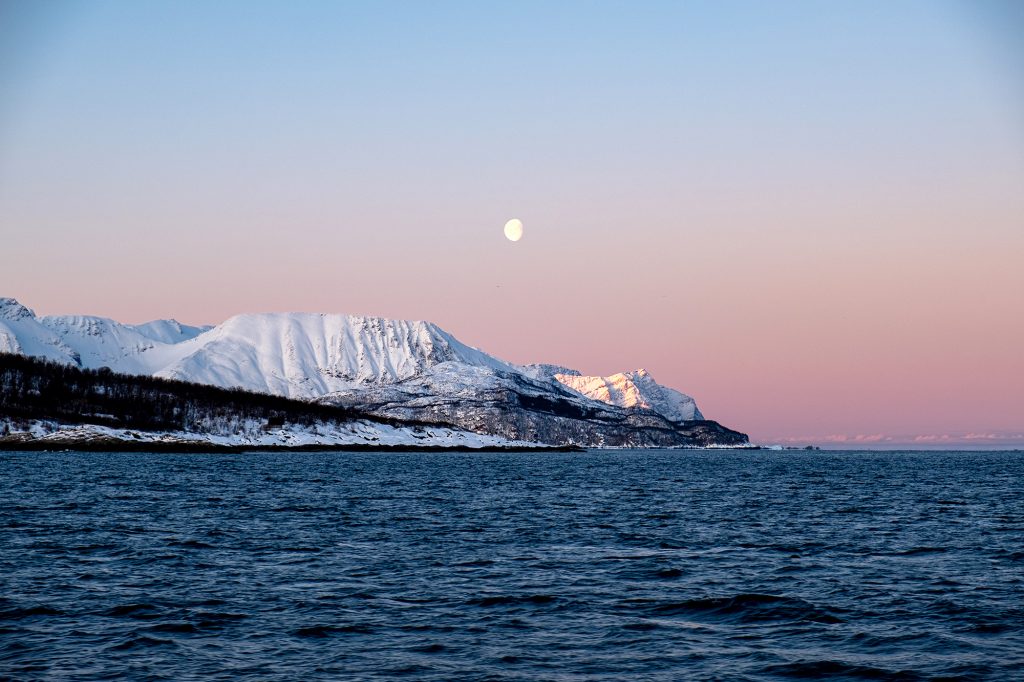
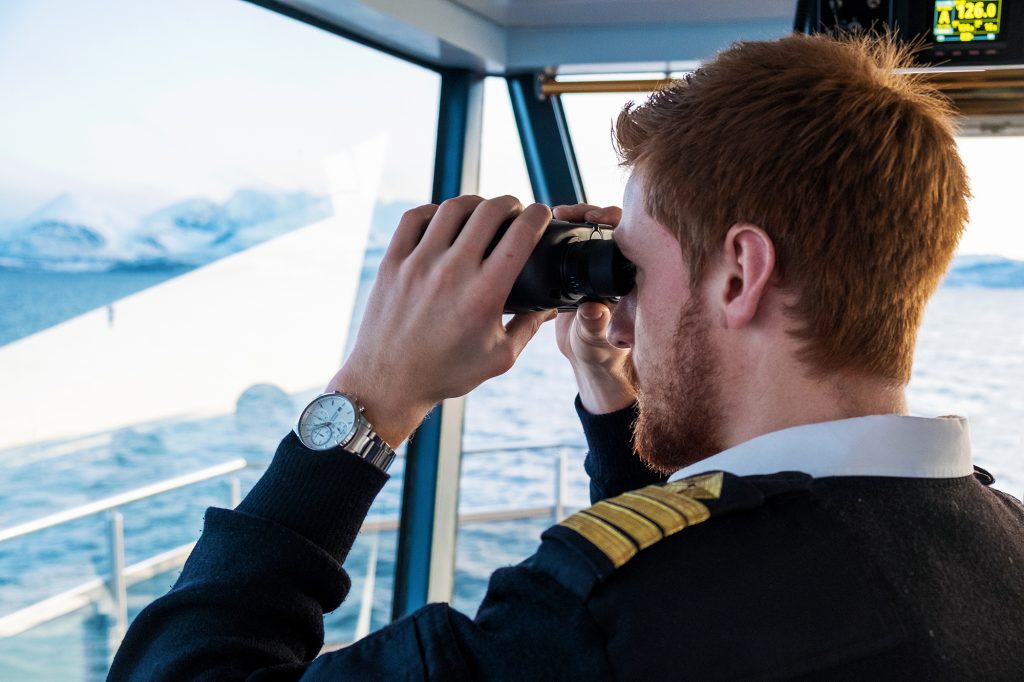
Conclusion
Pioneers in sustainable tourism and ethical whale watching are crucial trailblazers in an industry that continues to lack government regulations. The spirit for innovation sends a signal to competitors that times of malpractices are changing. That they will have to raise their standards of whale watching in this region to continue upholding tourist expectations. Whale watching and photographing whales has long been an incredibly accessible way to study and celebrate the oceans. It is also an effective means of disseminating education, raising awareness and promoting marine mammal conservation efforts. Yet, it is crucial that malpractices and irresponsible behaviours do not continue to be the norm as tourism in this region grows.
Ultimately, the question as to whether upcoming technologies will provide solutions for industry malpractices remains to be answered, as whale watching operators continue to innovate. While malpractices are inevitable without government regulations, I think it is definitely a colossal step towards ethical and sustainable whale tourism for the long-term.
Read more: 20 Ways to Photograph Wildlife Ethically
